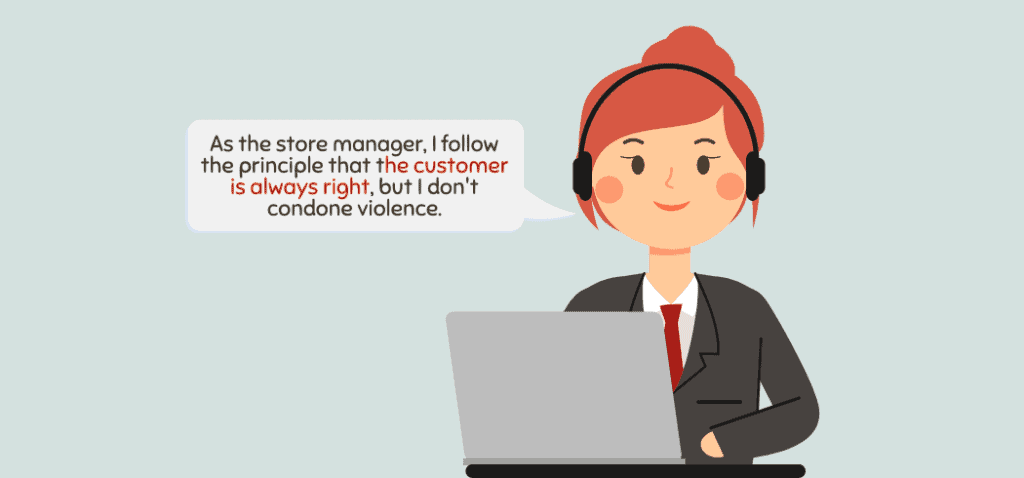If you have worked in retail, you’ve probably heard the age-old phrase, “The customer is always right.” Now, this adage has been repeated countless times by business owners, managers, and employees. However, you must understand its deeper meaning and implications. So, let’s take a look.
What Is the Meaning of “The Customer Is Always Right”?
“The customer is always right” is a pretty common saying used in the business world because it emphasizes the importance of providing the best possible customer service so your patrons are satisfied and come back.
It shows that we should prioritize customers’ needs and desires, even when those customers might be difficult or have unreasonable demands. It’s like a gentle reminder to always treat customers respectfully and prioritize their happiness and satisfaction. Without them, the business would fail.
The Customer Is Always Right Full Quote
Phrases like this are often shortened over time to be more concise and quicker to say, like “Jack of all trades, but a master of none.” The full phrase is actually, “A jack of all trades is a master of none, but often better than a master of one.”
In this case, the full phrase is “Rule number one: the customer is always right. Rule number two: If the customer is wrong, please refer to rule number one.”
The full version just further emphasizes the intent behind it. The customer will always be right, no matter what. But, in my opinion, that can only go so far. I spent years in retail, and I can tell you some customers are just out of line. When they start approaching things that are racist, derogatory, etc., then I don’t consider them to be “right” at all.
Origin of “The Customer Is Always Right”
The timeless aphorism “The customer is always right” is widely attributed to Harry Gordon Selfridge, the founder of the popular Selfridge’s department store located in London.
Wisconsin-born Selfridge introduced the phrase in the early 1900s to encourage employees to prioritize customer satisfaction and create an environment where customers felt valued and respected. It was all part of his marketing and brand establishment.
But, some sources also attribute the saying to other business magnates of the era, like César Ritz, who was the founder of the famous Ritz Hotel. He actually coined the phrase as “Le client n’a jamais tort,” which translates as “the customer is never wrong.”
The Customer Is Always Right Examples in a Sentence
- As the store manager, I follow the principle that the customer is always right, but I don’t condone violence.
- When they complained about the gross taste, I remembered that the customer is always right and offered a replacement meal.
- Our customer service policy is simple: the customer is always right.
- Even when the customer doesn’t have a receipt, we make returns and exchanges because the customer is always right, and we want them to come back again.
- I hate that in retail, you have to live by the idea that the customer is always right because people can be so nasty, and it’s hard not to call them on it.
- The famous hotel’s excellent reputation was built on the principle that customers are always right, so guests always leave feeling very satisfied.
Are Customers Always Right?
Whether you agree with it or not, the phrase has acted as an adage for many years, and tons of successful businesses have built their reputations on it. So, whenever you hear the phrase, just remember that it means the customer should be treated as though they’re right, even if they’re not.
Check out some other articles we covered:


